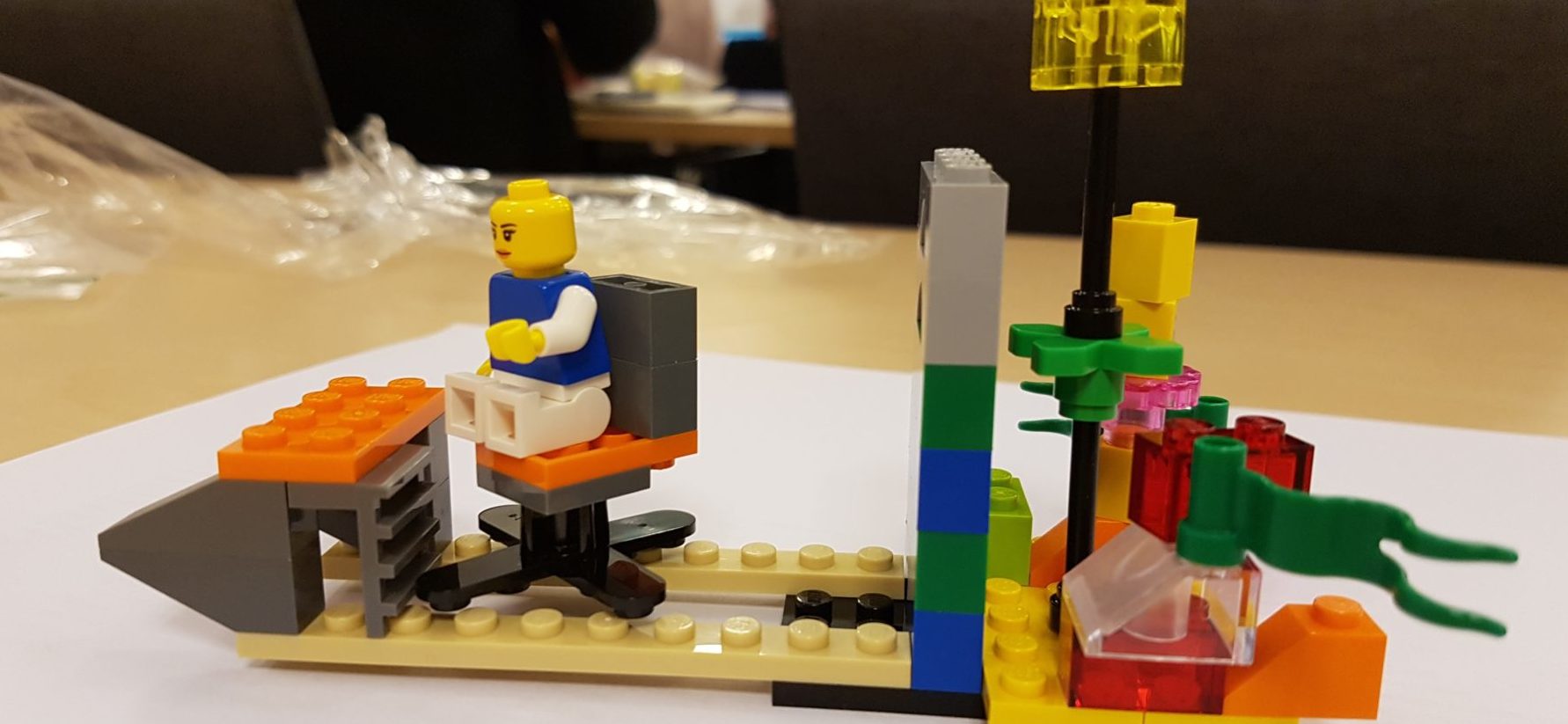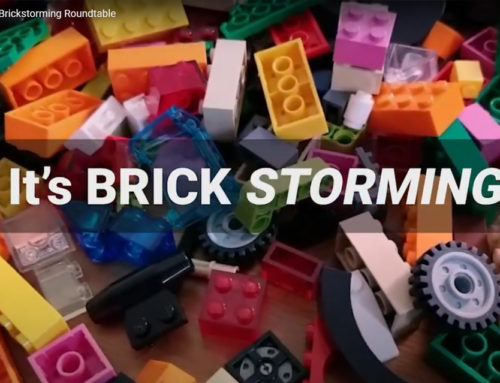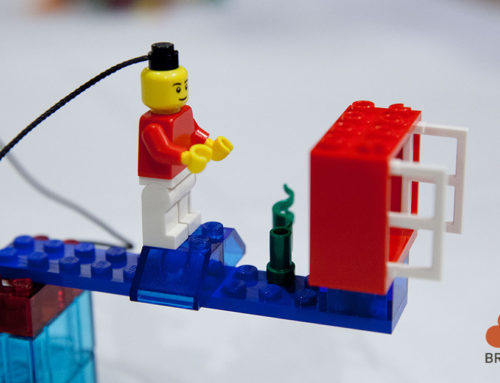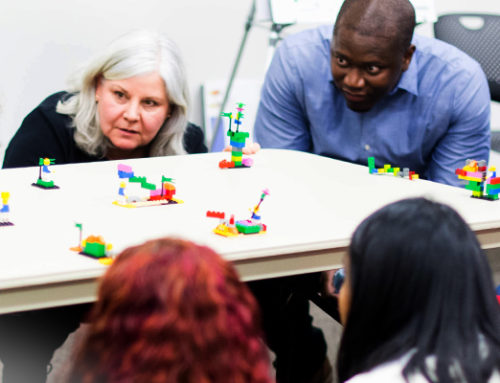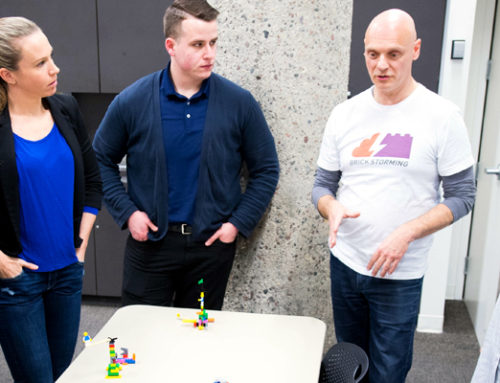The LEGO® SERIOUS PLAY® method is based in part on the constructionist principle. This principle posits that meaning, understanding, and ultimately our social reality are created through language and conversations, as we construct them. What we believe to be true is informed by and evolves through conversations with others.
In a TEDx Talk, Julia Galef (co-founder and president of the Nonprofit Center for Applied Rationality) presents the idea of two different mindsets. She purports that people naturally gravitate to one of two mindsets; the soldier mindset in which the believer defends his or her beliefs at all costs, or the scout mindset in which the believer strives to see the world as clearly as possible.
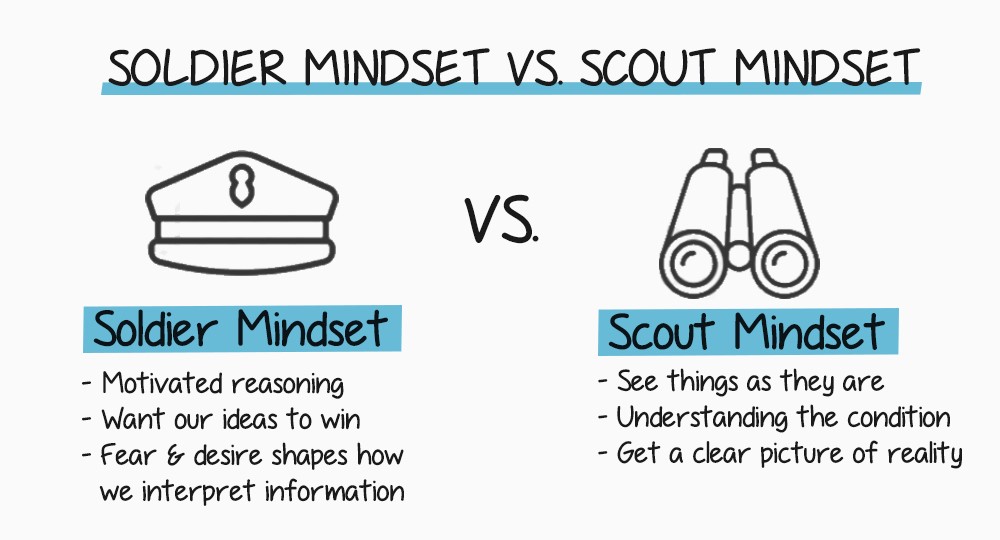 If we accept these two mindsets and examine how they shape the way we interpret information and construct our realities, we can find benefits and drawbacks to each. A soldier mindset, although mostly unconscious, allows you to passionately defend what you believe to be right, and encourages you to prioritize your values or beliefs. However, it also encourages holders of the mindset to discount contradictory evidence and essentially hear only what they want to hear. Alternatively, a scout mindset is highly conscious and requires an individual to be invested in maintaining this perspective. The key benefit to this mindset however, is that it allows you to investigate the world around you as accurately and unbiased as possible, to see what is truly there and to hear everything.
If we accept these two mindsets and examine how they shape the way we interpret information and construct our realities, we can find benefits and drawbacks to each. A soldier mindset, although mostly unconscious, allows you to passionately defend what you believe to be right, and encourages you to prioritize your values or beliefs. However, it also encourages holders of the mindset to discount contradictory evidence and essentially hear only what they want to hear. Alternatively, a scout mindset is highly conscious and requires an individual to be invested in maintaining this perspective. The key benefit to this mindset however, is that it allows you to investigate the world around you as accurately and unbiased as possible, to see what is truly there and to hear everything.
Unfortunately, regardless of the benefits, we as a society do a terrible job of creating or encouraging a scout mindset in our members, and instead give a lot of instruction to our membership to develop a soldier mindset. This is particularly problematic in today’s workforce, where employees are already more likely to be disengaged from the workplace (out of employees who do not feel they are comfortable talking to their managers, only 2% are engaged, and 65% are actively disengaged), disconnected from each other (despite being essential for employee engagement and happiness, in the last 30 years, the number of people reporting a friend at work has dropped by over 20%), and more unwilling to offer contradictory opinions (two-thirds of 18-24 year-olds and 56% of 35-44 year-olds are typically unwilling to offer differing opinions – Stats Source) .
“We need to change the way we feel — to learn how to feel proud instead of ashamed when we notice we might have been wrong about something, or to learn how to feel intrigued instead of defensive when we encounter some information that contradicts our beliefs.”
If the way we talk together influences understanding, interpersonal dynamics, and teams, departments, and organizations, then it makes sense to hold your beliefs lightly and to ask questions and make room for both new knowledge, new ways of seeing and understanding, and new meaning. It makes sense to encourage a scout mindset in our society members. It makes sense to use the LEGO® SERIOUS PLAY® Method to allow people to begin to reconstruct their social reality rather than instructing them to hold our beliefs.



